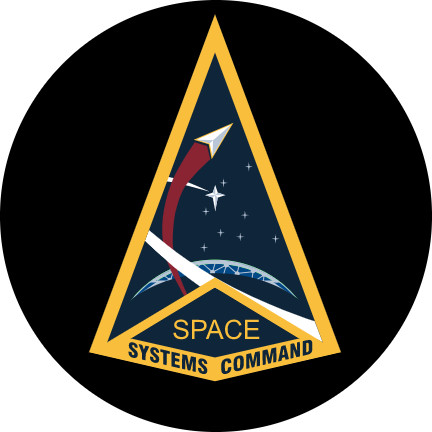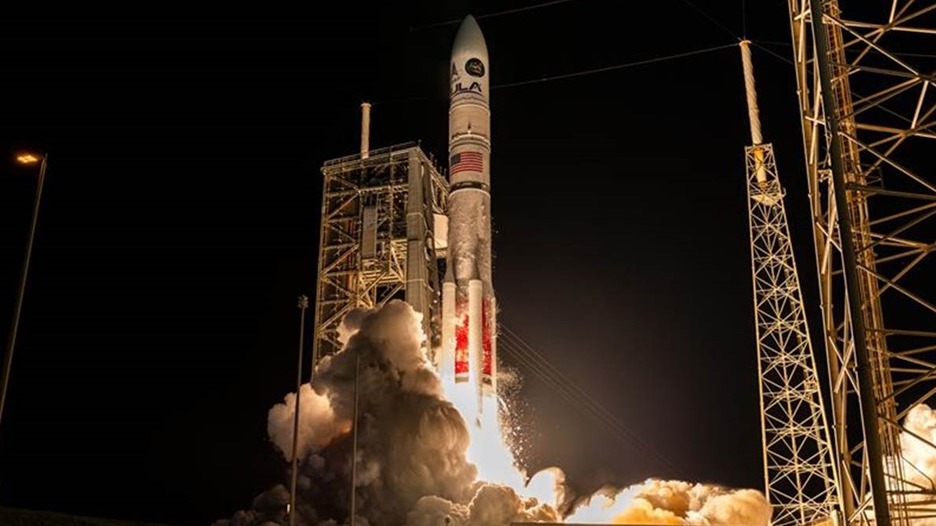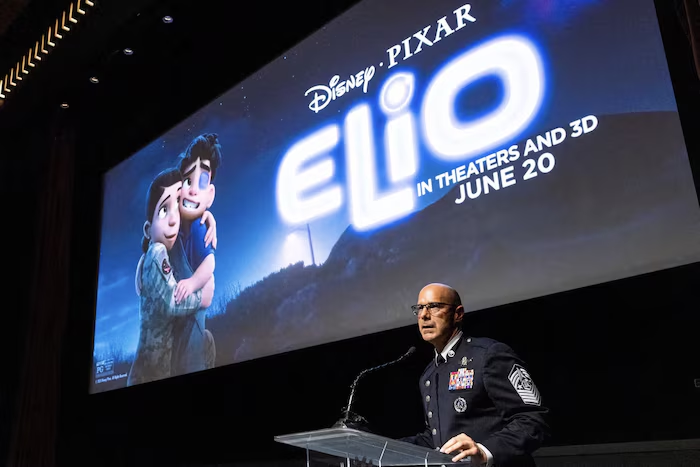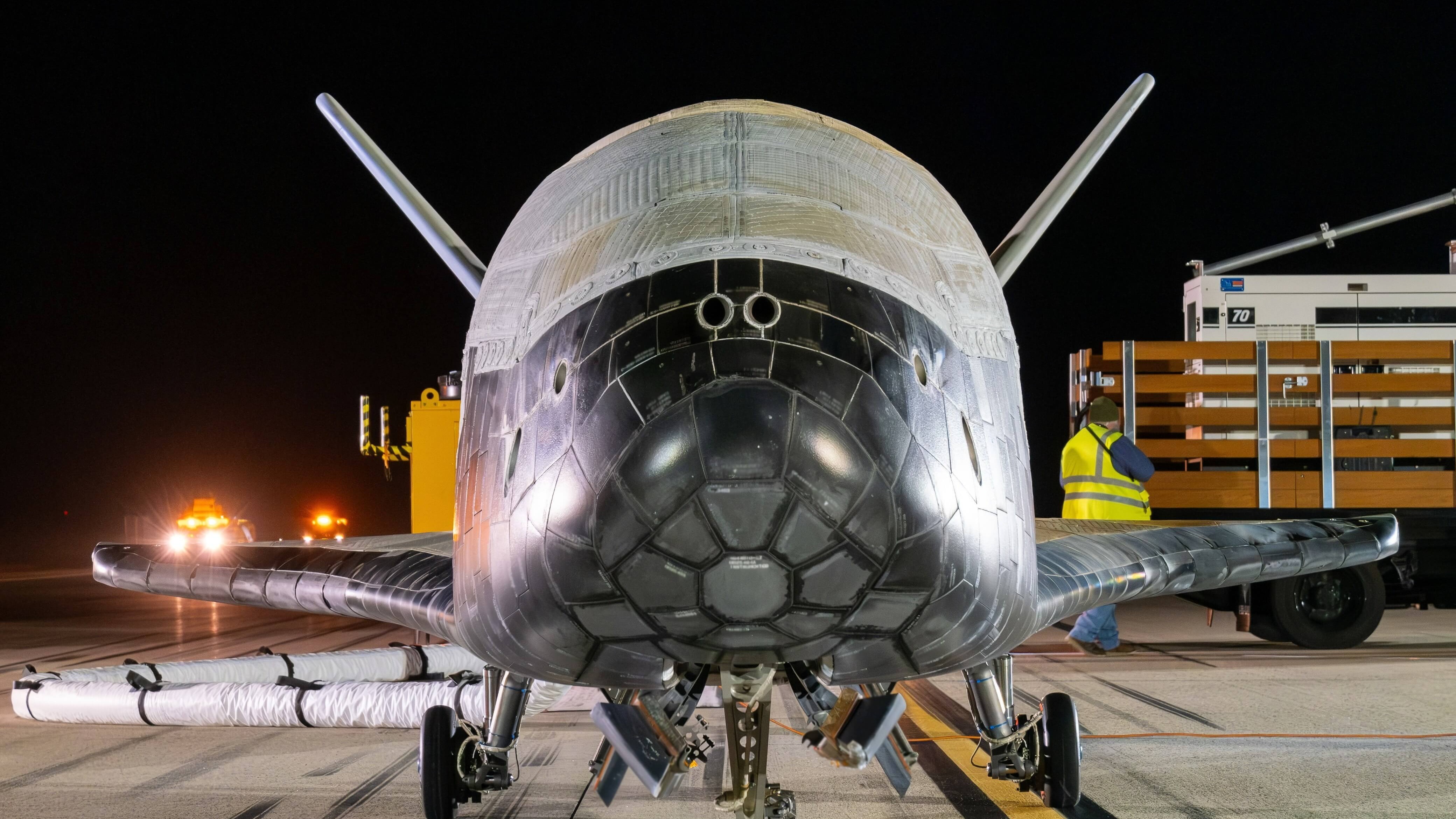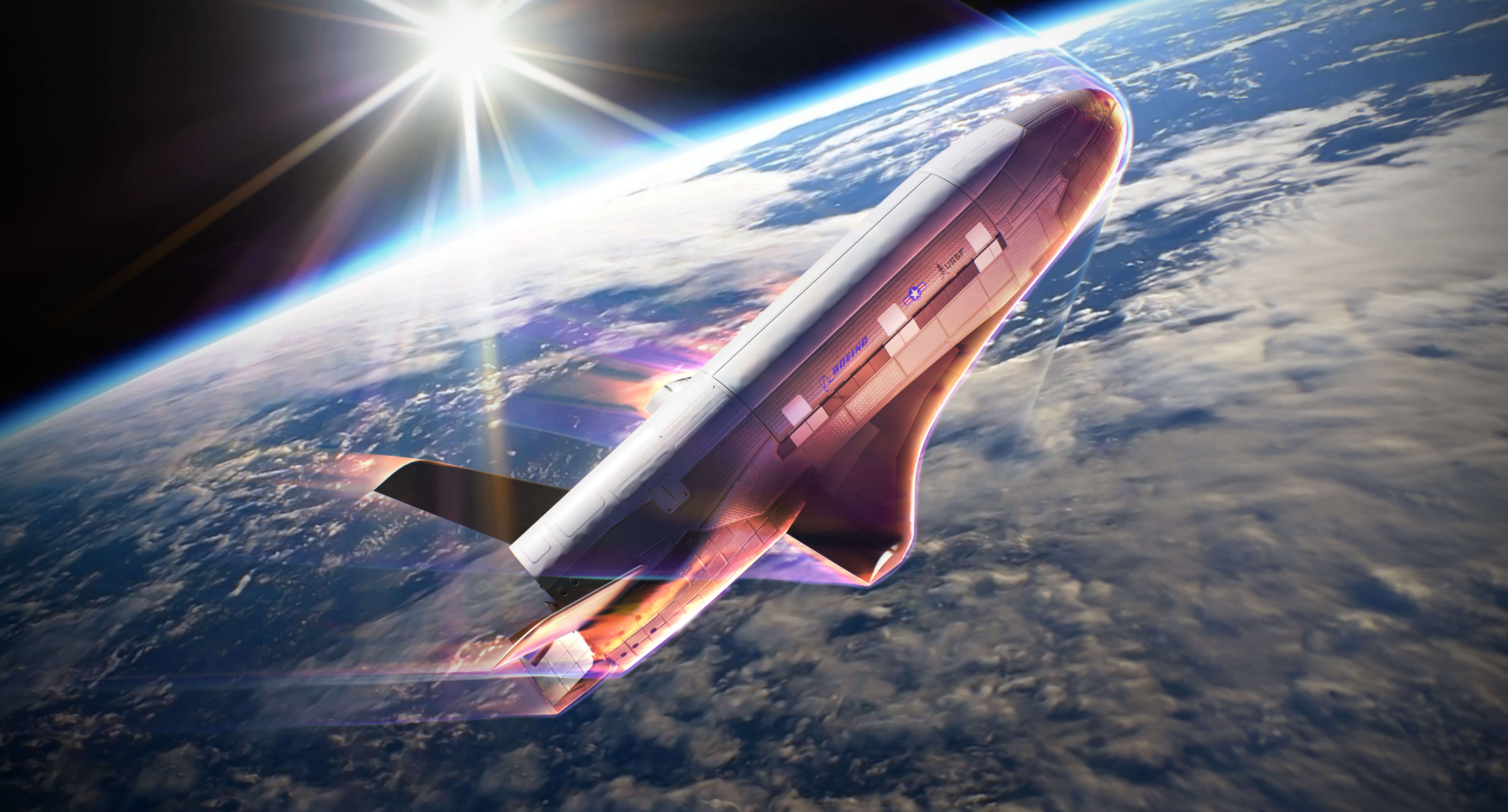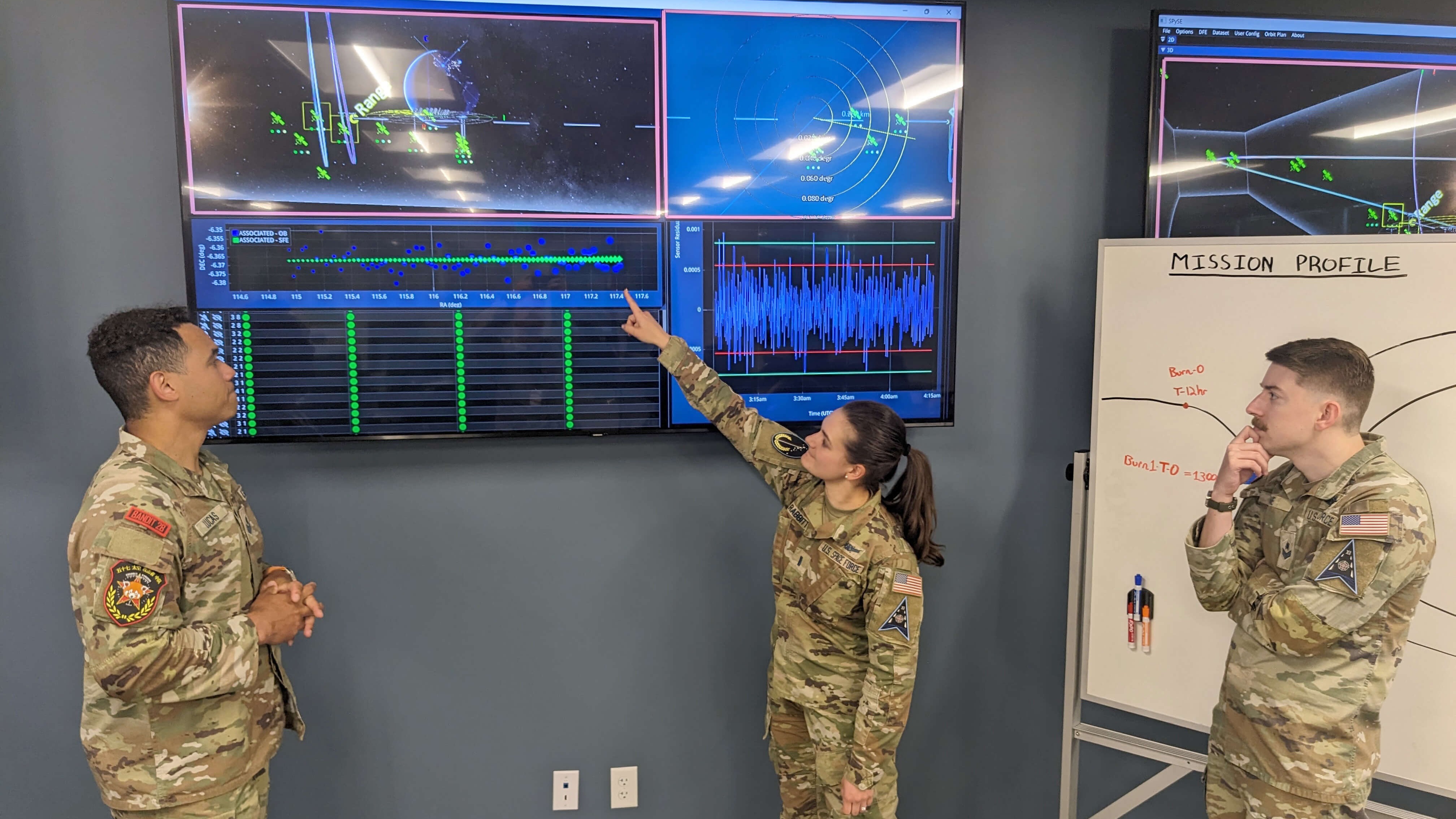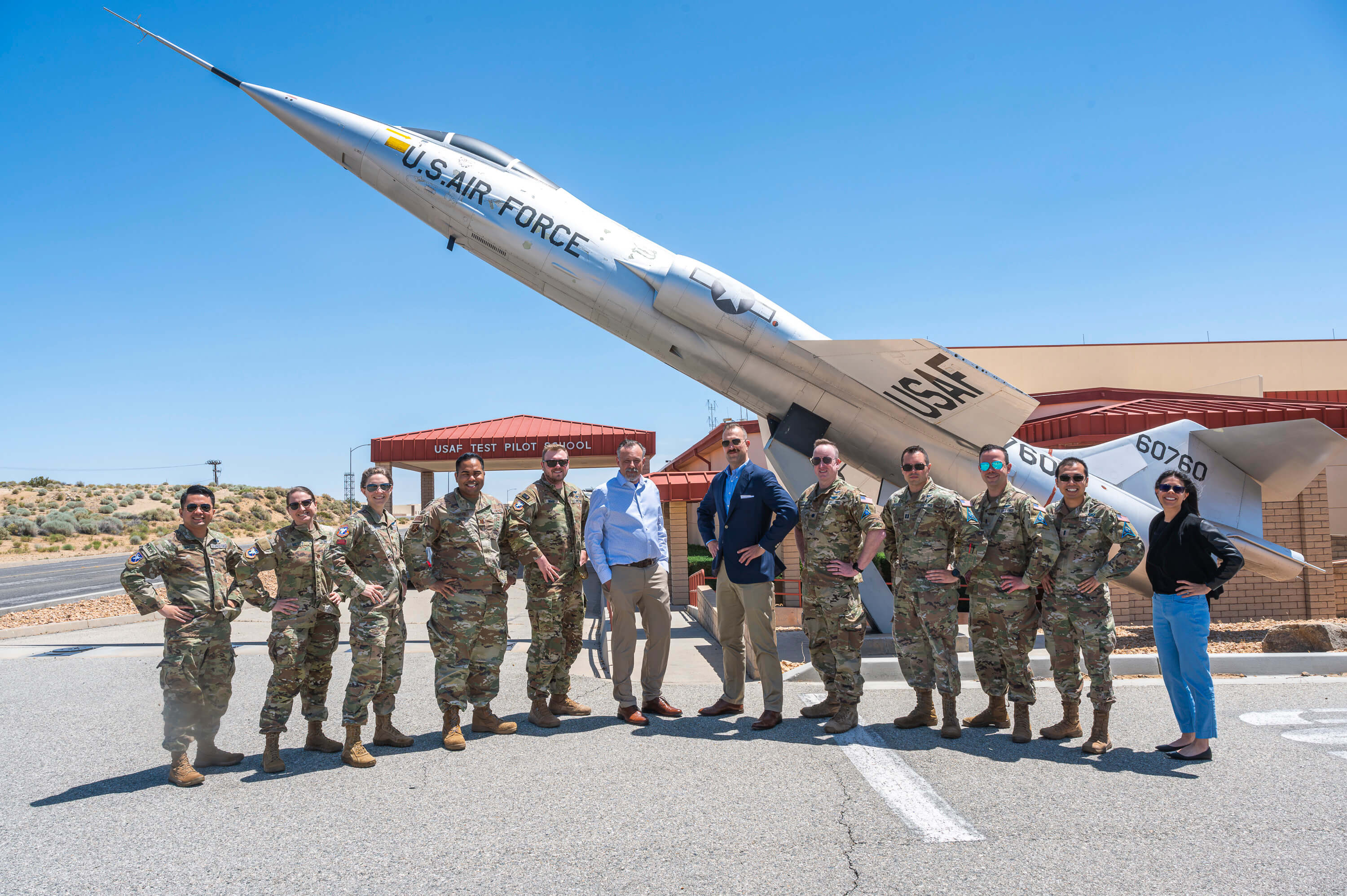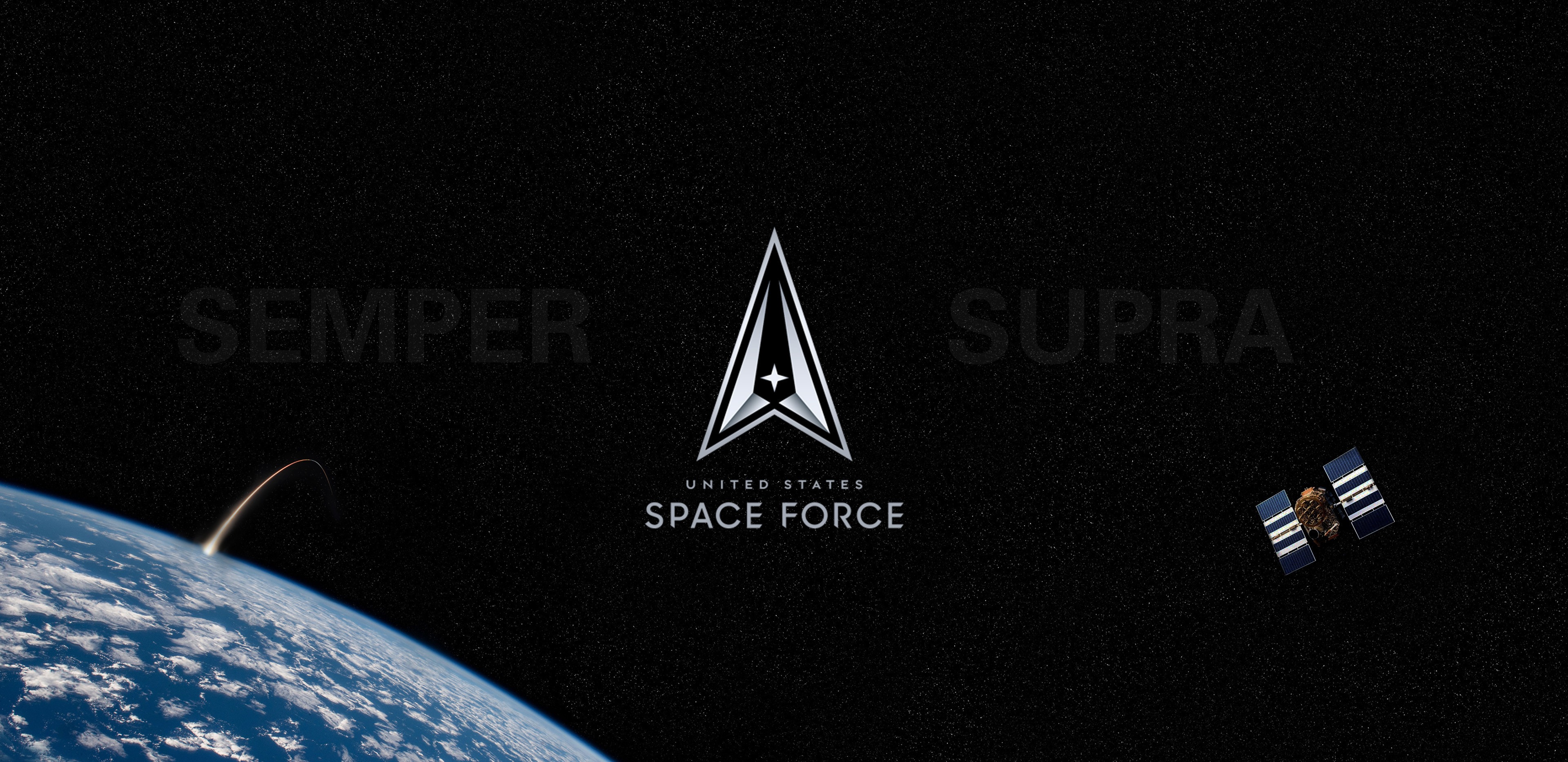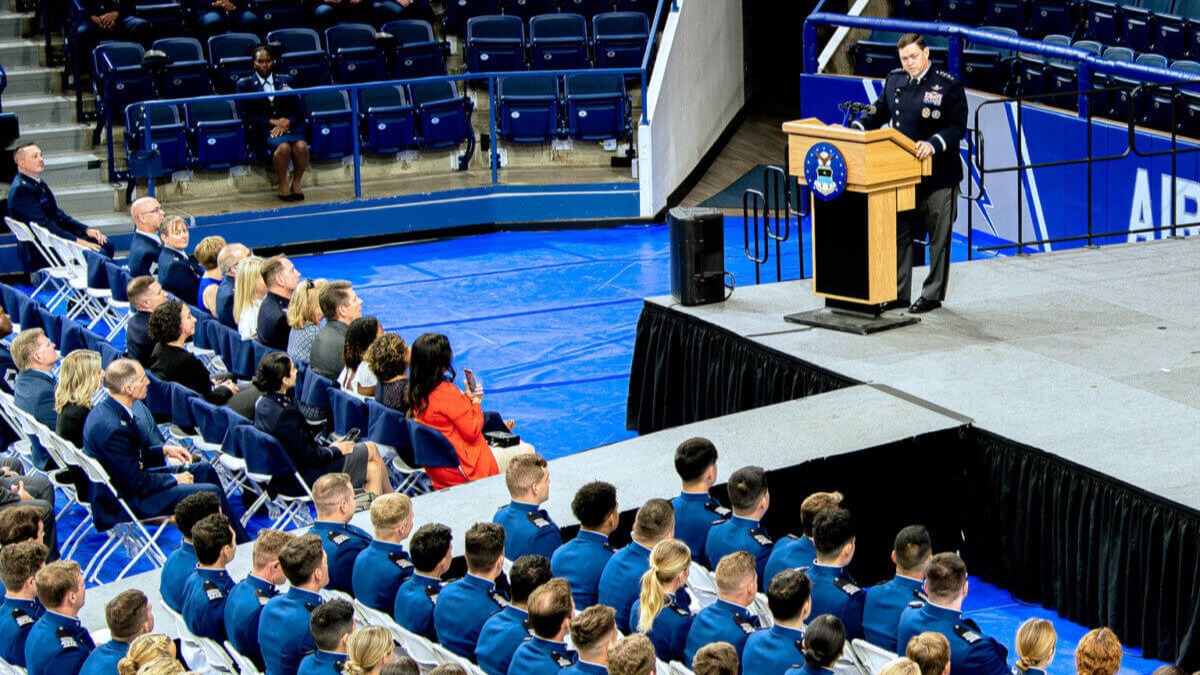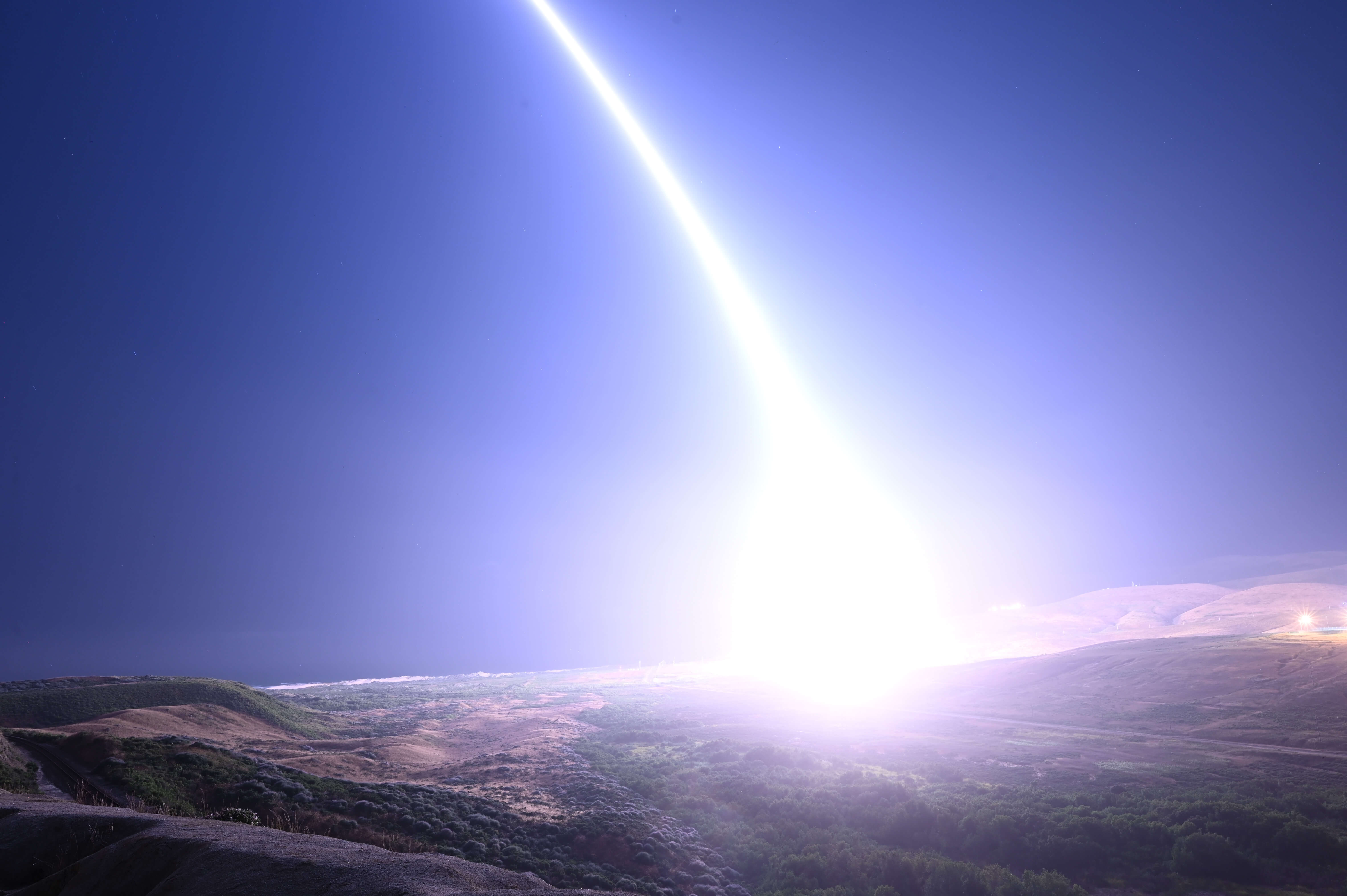Lt. Gen. Michael A. Guetlein, commander of USSF’s Space Systems Command, joined USC President Carol Folt at USC’s University Park Campus for the signing. Other Space Systems Command attendees included Brig. Gen. D. Jason Cothern, SSC vice commander; CMSgt. Willie H. Frazier II, SSC senior enlisted leader; Natalie Riedel, director of contracting; Col. Robert Long, commander of Space Launch Delta 30 at Vandenberg Space Force Base; and Roberta Ewart, Chief Scientist.
“We are delighted that the University of Southern California is now a part of USSF’s University Partnership Program,” Guetlein said. “In order to succeed in our mission, the U.S. Space Force needs a highly educated and diverse group of military and civilian Guardians who have the technical expertise and problem-solving skills to develop, advance, and operate the world’s most advanced space systems today and into the future of our congested and contested space domain.”
He added: “Advanced research in space-applied topics and technologies is critical to national security, and this new University Partnership Program is another important way for the Space Force to connect with future Guardians – tomorrow’s leaders -- and the world-class research conducted at USC.”
“This is a remarkable and exciting extension of USC’s longstanding partnership with the U.S. Armed Forces,” said Folt. “Our agreement with the U.S. Space Force creates a new way for members of the Trojan community to serve our country and will leverage USC’s strengths in aerospace research and education to help build a diverse force of scientists and engineers who are focused on operating in new realm.”
A leading private research university, USC serves more than 49,500 graduate and undergraduate students and offers a diverse curriculum in the arts, business, engineering, liberal arts, medicine, policy and multiple sciences. With nearly $900 million in annual research expenditures, USC has one of the top federally-funded computer science research programs, and one of the largest graduate programs in science, engineering, and health of all U.S. private research universities.
USC has a long history of partnership with the military: its ROTC partnership can be traced as far back as 1914, when USC served as a training school during World War I, Folt said. Two years after the U.S. Air Force was created, USC’s Air Force ROTC program was established in 1949.
Illustrious USC alumni include Neil Armstrong, who earned a master’s degree in aerospace engineering after his 1969 trip to the moon; Viterbi School of Engineering Professor Garrett Reisman, a former NASA astronaut; and retired Lt. Gen. Stayce D. Harris, who was commissioned through USC’s Air Force ROTC program and is the first African American woman to hold a three-star rank in the Air Force.
Harris, who attended the event, said, “I am so proud that there is a relationship now with the University of Southern California – and even more with the Viterbi School of Engineering, of which I am an alumna – and U.S. Space Force. This is leading-edge everything.”
Students who once might have only thought of becoming a pilot can now consider whether they would like to be a USSF Guardian, giving them another option to protect and defend their nation, Harris said.
Establishing strategic university partnerships enables USSF to recruit and educate a diverse and tech-savvy Guardian workforce, create opportunities for advanced academic degrees, open channels for university students and ROTC cadet scholarships and establish world-class research opportunities.
“So much of the American way of life depends on access to space and the nation’s adversaries are well aware of it,” Guetlein said. “Getting better at protecting U.S. space assets begins with USSF partnerships – with allied nations, commercial industry and academic institutions.”
“What we’ve got to do is to get the public excited about STEM again,” Guetlein said. “It starts here, by teaching them what’s in the realm of the possible… getting them excited with partnerships like what we have here today.”
But Guetlein noted that the benefits of the partnership program will extend to more than just the U.S. Space Force.
“Our nation needs talented scientists and engineers in a variety of industries to develop new technologies and creative solutions for some daunting problems ahead,” Guetlein said. “Not every student who takes advantage of these higher education research and development opportunities will go on to serve in the military or become a government civilian, but with the knowledge and skills gained through this program, they will be positioned to serve our country in other ways.”
USC is the first university in California and one of 14 universities nationwide selected to join USSF’s University Partnership Program based on the quality of their STEM degree offerings and their space-related research laboratories and initiatives; robust ROTC programs; diverse student populations; and degrees and academic programs designed to support military, veterans and their families in pursuing higher education. Research and leadership development are the largest facets of the program.
The other universities in the USSF program are: University of North Dakota; Massachusetts Institute of Technology; Georgia Institute of Technology; The University of Texas at Austin/System; The University of Texas at El Paso; Howard University; North Carolina Agricultural and Technical State University; Purdue University; University of Colorado Boulder/System; the University of Colorado, Colorado Springs; Arizona State University; Clemson University; and University of Puerto Rico.
In Fiscal Year 2021, there were a total of 202 Guardians commissioned to the USSF through the three standard pathways: the U.S. Air Force Academy, Officer Training School and ROTC. In FY22, the USSF expects to commission 262 Guardian officers, with 127 of them coming from ROTC programs.
While at USC, Guetlein met with nearly a dozen U.S. Air Force ROTC cadets who had expressed interest in and an aptitude for the Space Force. Guetlein spent more than half an hour answering questions about his own career path, future career paths in the U.S. Space Force, how partnerships with the commercial space industry are helping increase the resiliency of USSF space assets and the importance of incorporating sustainable energy sources and new materials.
Guetlein also encouraged the cadets to seek out mentors, ask lots of questions when charting their own career paths, and to make sure the degree they earn is the one they truly want.
“Have a plan,” Guetlein said. “Figure out what’s important to you. Don’t let anyone sell you on what they think is important. You don’t have to have a plan today, but too many officers come in, they don’t have a plan, they just let things happen to them, and they’re not happy with their career because they didn’t take an active role.”
“Think through what you want to do, and then be the owner of your destiny,” Guetlein said.
Offsite tours of USC’s Center for Advanced Manufacturing and Institute for Creative Technologies rounded out the visit.
The MOU is the first step in defining the partnership. Next, the USSF and USC will work to outline specific implementation milestones to meet the program’s goals.
Space Systems Command is the U.S. Space Force field command responsible for rapidly identifying, prototyping and fielding resilient space capabilities for joint warfighters. SSC delivers sustainable joint space warfighting capabilities to defend the nation and its allies while disrupting adversaries in the contested space domain. SSC mission areas include launch acquisition and operations; space domain awareness; positioning, navigation and timing; missile warning; satellite communication; and cross-mission ground, command and control and data.

